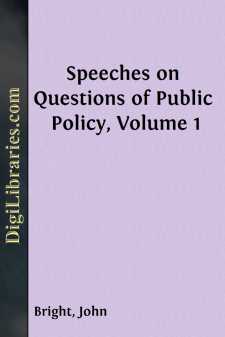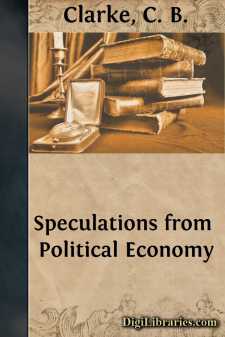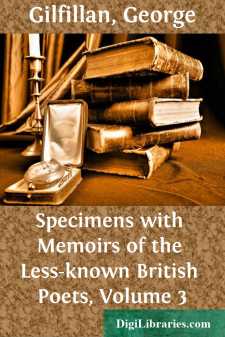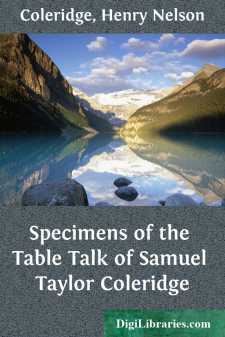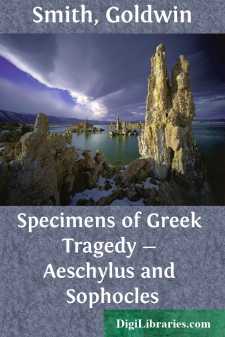Fiction
- Action & Adventure 180
- Biographical 15
- Christian 59
- Classics
- Coming of Age 5
- Contemporary Women 3
- Erotica 8
- Espionage/Intrigue 12
- Fairy Tales, Folklore & Mythology 236
- Family Life 169
- Fantasy 117
- Gay 1
- General 596
- Ghost 32
- Historical 808
- Horror 43
- Humorous 160
- Jewish 25
- Legal 4
- Medical 22
- Mystery & Detective 315
- Political 49
- Psychological 41
- Religious 64
- Romance 159
- Sagas 11
- Science Fiction 730
- Sea Stories 113
- Short Stories (single author) 537
- Sports 10
- Suspense 1
- Technological 8
- Thrillers 2
- Urban Life 31
- Visionary & Metaphysical 1
- War & Military 173
- Westerns 199
Classics Books
Sort by:
by:
John Bright
PREFACE. The speeches which have been selected for publication in these volumes possess a value, as examples of the art of public speaking, which no person will be likely to underrate. Those who may differ from Mr. Bright's theory of the public good will have no difficulty in acknowledging the clearness of his diction, the skill with which he arranges his arguments, the vigour of his style, the...
more...
The year 1888, that of the Silver Wedding of the Prince and Princess of Wales, is also the 25th anniversary of the year when the Prince first began to appear in public life. It is, therefore, a fit time to present some record of events in which His Royal Highness has taken part, and of services rendered by him to the nation, during the past quarter of a century. The best and the least formal way of...
more...
by:
C. B. Clarke
1. EFFICIENCY OF LABOUR. Political economists have not overlooked efficiency of labour: they have underestimated its importance in the opinion of Edward Wilson, who has supplied me with the examples and arguments that follow and who has verbally given me leave to publish as much as I like. The English workman, especially in a country town of moderate size, regards capital as unlimited, employment...
more...
by:
George Gilfillan
We propose to introduce our 'Specimens' by a short Essay on the Origin and Progress of English Poetry on to the days of Chaucer and of Gower. Having called, in conjunction with many other critics, Chaucer 'the Father of English Poetry,' to seek to go back further may seem like pursuing antenatal researches. But while Chaucer was the sun, a certain glimmering dawn had gone before...
more...
by:
George Gilfillan
WILLIAM HABINGTON. This poet might have been expected to have belonged to the 'Spasmodic school,' judging by his parental antecedents. His father was accused of having a share in Babington's conspiracy, but was released because he was godson to Queen Elizabeth. Soon after, however, he was imprisoned a second time, and condemned to death on the charge of having concealed some of the...
more...
by:
George Gilfillan
INTRODUCTORY ESSAY We propose to introduce our 'Specimens' by a short Essay on the Origin and Progress of English Poetry on to the days of Chaucer and of Gower. Having called, in conjunction with many other critics, Chaucer 'the Father of English Poetry,' to seek to go back further may seem like pursuing antenatal researches. But while Chaucer was the sun, a certain glimmering dawn...
more...
by:
George Gilfillan
SIR CHARLES SEDLEY. Sedley was one of those characters who exert a personal fascination over their own age without leaving any works behind them to perpetuate the charm to posterity. He was the son of Sir John Sedley of Aylesford, in Kent, and was born in 1639. When the Restoration took place he repaired to London, and plunged into all the licence of the time, shedding, however, over the putrid pool...
more...
PREFACE. * * * * * It is nearly fifteen years since I was, for the first time, enabled to become a frequent and attentive visitor in Mr. Coleridge's domestic society. His exhibition of intellectual power in living discourse struck me at once as unique and transcendant; and upon my return home, on the very first evening which I spent with him after my boyhood, I committed to writing, as well as I...
more...
by:
Goldwin Smith
PREFACE. Greek drama, forerunner of ours, had its origin in the festival of Dionysus, god of wine, which was celebrated with dance, song, and recitative. The recitative, being in character, was improved into the Drama, the chief author of the improvement, tradition says, being Thespis. But the dance and song were retained, and became the Chorus, that peculiar feature of the Greek play. This seems to be...
more...
Once upon a time--But what author will venture to begin his tale so now-a-days?--Obsolete! tedious!--Such is the cry of the gentle, or rather ungentle reader, who wishes to be plunged at once, medias in res, according to the wise advice of the old Roman poet. He feels as if some long-winded talker of a guest, who had just entered, was spreading himself out, and clearing his voice to begin an endless...
more...


